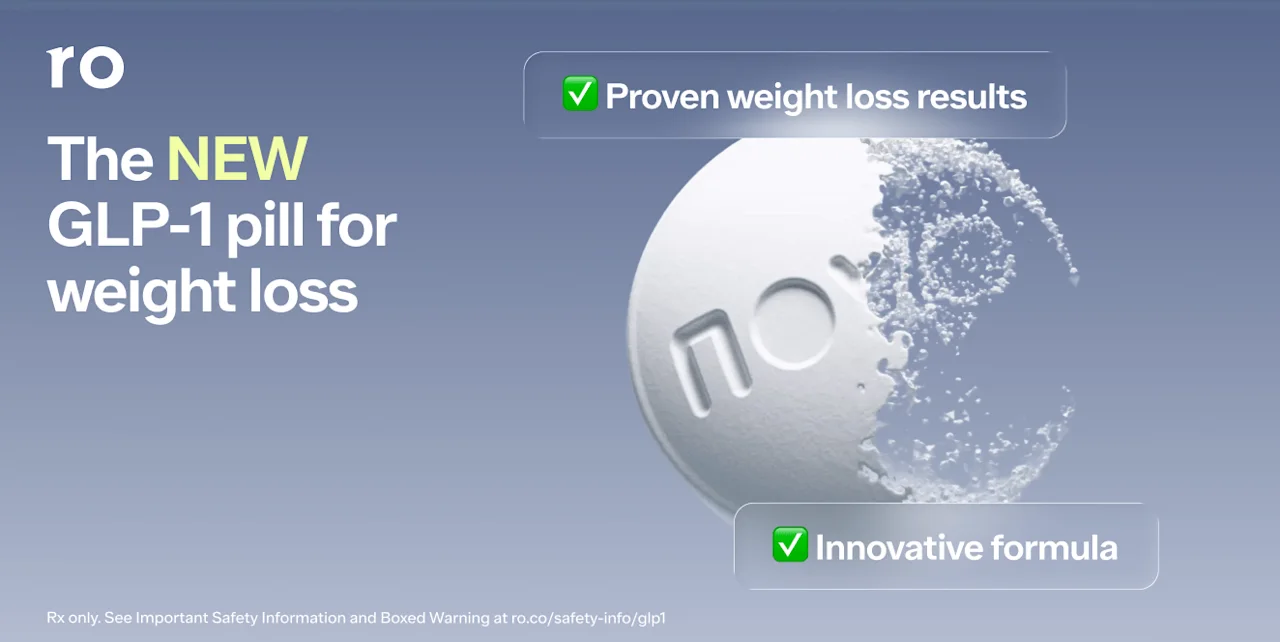Key takeaways
Diarrhea is a common side effect of Zepbound (tirzepatide), affecting up to 23% of people in clinical trials.
Possible causes of Zepbound diarrhea include changes in gut motility, gut bacteria, and increased bile acids in the gut, all of which can affect how food moves through the digestive system.
Management strategies include staying hydrated, eating smaller meals, avoiding fatty foods and dairy, and trying over-the-counter (OTC) remedies, if appropriate.
Here's what we'll cover
Here's what we'll cover
Here's what we'll cover
Key takeaways
Diarrhea is a common side effect of Zepbound (tirzepatide), affecting up to 23% of people in clinical trials.
Possible causes of Zepbound diarrhea include changes in gut motility, gut bacteria, and increased bile acids in the gut, all of which can affect how food moves through the digestive system.
Management strategies include staying hydrated, eating smaller meals, avoiding fatty foods and dairy, and trying over-the-counter (OTC) remedies, if appropriate.
It's normal to experience side effects when starting a new medication. But due to the media attention around newer weight loss medications, you may be even more concerned about the side effects of Zepbound (tirzapetide). Specifically, many worry about "Zepbound diarrhea," what people who take the medication casually refer to as one of the side effects.
Keep reading to learn how common Zepbound diarrhea is, why it happens, how to treat it, and when to speak with a healthcare provider.
Does Zepbound cause diarrhea?
Yes, Zepbound can cause diarrhea. In fact, the drug's prescribing information lists diarrhea as one of the common side effects of the weight loss medication.
In clinical trials, up to 23% of patients experienced diarrhea compared to only 8% of those taking a placebo. More specifically:
19% of people taking 5 mg of Zepbound reported diarrhea
21% of people taking 10 mg of Zepbound reported diarrhea
23% of people taking 15 mg of Zepbound reported diarrhea
These statistics come from a phase 3 trial of tirzapetide. Diarrhea was the second most common side effect in the study (nausea came in first). The study noted that most instances of diarrhea occurred when patients increased their dosages and that the side effect subsided over time.
Just like with other GLP-1 (glucagon-like peptide-1) medications, the side effect seems to be dose-dependent. Meaning, it is more likely to occur (and be worse) at higher doses.
These numbers seem to be true outside of studies as well.
"In my practice, I see diarrhea in about a quarter of my patients taking Zepbound," says Allie Buttarazzi, MD, a board-certified internal medicine and lifestyle medicine physician.
In addition to diarrhea, the common side effects of Zepbound include nausea, stomach pain, constipation, heartburn, indigestion, burping, injection site reactions, and fatigue.
Why does Zepbound cause diarrhea?
While diarrhea is the second most common side effect of Zepbound, experts don’t completely understand why it happens with the drug. But it’s most likely due to the ways Zepbound affects the digestive system.
Quick refresher: Zepbound works by mimicking hormones — GLP-1 and GIP (glucose-dependent insulinotropic polypeptide) — that help control blood sugar and appetite. It delays gastric emptying, slowing how quickly food moves through your digestive tract.
This can help you feel fuller longer, eat less, and lose weight. But it can also lead to gastrointestinal (GI) side effects, such as diarrhea and — to make matters more complicated — constipation. (Yup, the same drug that may have you running to the loo can also leave you stuck on the toilet.)
Let’s take a closer look at what may be happening in your body that can trigger diarrhea on Zepbound.
Gut motility changes
Studies show GLP-1s have prominent direct effects on the GI tract, especially on motility (i.e. how food moves through the gut).
"Zepbound slows gastric emptying and alters gut hormone signaling, which can change how food moves through the intestines," explains Supriya Rao, MD, DABOM, DABLM, a quadruple board-certified provider in internal medicine, gastroenterology, obesity, and lifestyle medicine.
When food moves more slowly through your gut, it helps you feel full longer and eat less. But it also shifts your bowel habits. Some people experience constipation from the slower movement, while others may notice looser stools or diarrhea as their gut adjusts to treatment.
Gut bacteria changes
GLP-1s like Wegovy (semaglutide) and dual GLP-1/GIPs like Zepbound have been shown to change the gut microbiome. In other words, they can throw off the balance of microorganisms that support digestion, nutrition, immunity, and several other functions. And this can lead to GI side effects, such as, yup, diarrhea.
Increased bile acids in the gut
Researchers don't fully understand the exact reasons behind GI side effects in people taking GLP-1s. But bile acids may be part of the story, according to Dr. Rao.
Bile acids are digestive fluids that help your body break down fats. Zepbound may increase how much bile your liver makes. That extra bile could change the consistency of your stools, leading to diarrhea.
How long does Zepbound diarrhea last?
How long Zepbound diarrhea lasts varies and depends on the individual and the dosage.
Although it’s technically a dual GLP-1/GIP, Zepbound operates similarly and shares side effects with GLP-1 medications like Wegovy. And research suggests that diarrhea typically lasts for about three days in people taking GLP-1s for obesity.
"Diarrhea is most common when someone first starts Zepbound or increases the dose," Dr. Buttarazzi says. "For most patients, it improves or even resolves with continued use [of the medication]."
Clinical trials note that diarrhea in participants was mild to moderate. However, if you have diarrhea that lasts more than 4–5 days, is not improving, or happens more than two times a day, Dr. Buttarazzi recommends contacting your provider.
"If it continues beyond a few weeks at a stable dose," Dr. Rao adds, "we might reassess and consider modifications." A dosage change or a new medication entirely may be warranted in some cases. And on that note…
Zepbound diarrhea treatment: 5 ways to stop or manage it
Managing and even stopping diarrhea on Zepbound typically involves staying hydrated, limiting caffeine intake, adjusting your diet, and more.
The good news? The side effect tends to be temporary, and there are a few ways you can attempt to alleviate your symptoms until it subsides.
1. Stay hydrated
When you have a bout of diarrhea, you are essentially losing a lot of fluid from your body. If you have diarrhea too frequently, you could end up dehydrated, which would lead to thirst, fatigue, headache, and dizziness.
Dr. Buttarazzi recommends staying hydrated with oral rehydration solutions or electrolyte-rich fluids, such as coconut water, fruit juices, or broths. But be sure to pay attention to salt or sugar content, as added sugar and sodium can worsen side effects and inhibit your weight loss goals on Zepbound.
You can also just keep up your fluid intake by sipping on water — no need to worry about calories or added ingredients that way, too.
2. Limit caffeine and alcohol
Caffeine is negatively associated with chronic diarrhea. That’s because it can increase the activity of the colon. Meanwhile, alcohol consumption can also cause or worsen diarrhea. So, cutting back on your daily cups of Joe and glasses of wine may help alleviate Zepbound diarrhea.
3. Modify your meals
The experts interviewed recommended eating smaller meals throughout the day and avoiding foods that could aggravate diarrhea, such as fried foods, dairy, and spices. And clinical studies also support this approach.
"Once rehydrated, I suggest small, frequent meals and avoiding dairy for a few days since lactose can be harder to digest during diarrheal episodes," Dr. Buttarazzi explains. "For my Zepbound patients, I also recommend avoiding large or high-fat meals, which can worsen nausea, vomiting, and diarrhea."
Following a bland diet or a BRAT diet may also help treat Zepbound diarrhea. That’s because eating bland foods, such as bananas, toast, oatmeal, and applesauce, can help make stools firmer.
"The BRAT diet is a simple and safe option when diarrhea flares," Dr. Rao explains. "It’s not meant as a long-term nutrition plan, but it can help settle the stomach and reduce stool frequency.”
4. Consider an over-the-counter medication
If you are struggling to get a handle on your diarrhea symptoms, you may consider trying over-the-counter (OTC) medications such as:
Pepto-Bismol (bismuth subsalicylate), which reduces inflammation in the intestine and decreases the flow of fluids and electrolytes into the bowel.
Imodium (loperamide), which slows bowel movements, allowing more water and electrolytes to be absorbed, and reduces frequency.
"Supplements like probiotics, zinc, or psyllium husk fiber may help some people, but evidence is limited for medication-related diarrhea," Dr. Buttarazzi says. (Psyllium husk fiber is a supplement that's helpful for the GI in many cases: It helps with both diarrhea and constipation symptoms.)
However, before starting any new medication or supplement, you should discuss with your healthcare provider to ensure you don't have any medications or conditions that will interact. Once approved, always follow instructions on the medication label.
Bottom line
Nausea may be the most common side effect of Zepbound, but diarrhea is a close second. Here’s what you need to know:
In clinical trials, up to 23% of people taking Zepbound experienced diarrhea.
Zepbound may cause diarrhea because of its effects on the digestive system, specifically slowing down gut motility, disrupting the microbiome, and increasing bile acids in the gut.
Like other side effects, diarrhea is typically temporary and most common at the beginning of treatment and during dose escalation.
Staying hydrated, avoiding trigger foods, eating smaller meals, following a bland diet, and limiting caffeine and alcohol can help you manage Zepbound diarrhea.
Just because it’s a common side effect of Zepbound doesn’t mean you shouldn’t contact your healthcare provider if you’re experiencing diarrhea. This is especially true if your symptoms last more than 4–5 days or begin to significantly impact your quality of life. Your healthcare provider can determine if Zepbound is truly the cause and, if so, the best strategies for stopping your symptoms.
DISCLAIMER
If you have any medical questions or concerns, please talk to your healthcare provider. The articles on Health Guide are underpinned by peer-reviewed research and information drawn from medical societies and governmental agencies. However, they are not a substitute for professional medical advice, diagnosis, or treatment.
Zepbound Important Safety Information: Read more about serious warnings and safety info.
Wegovy Important Safety Information: Read more about serious warnings and safety info.
GLP-1 Important Safety Information: Read more about serious warnings and safety info.
References
Budisak, P., Patel, P., & Abbas, M. (2024). Bismuth subsalicylate. StatPearls. Retrieved from https://www.ncbi.nlm.nih.gov/books/NBK560697/
Bujanda, L. (2000). The effects of alcohol consumption upon the gastrointestinal tract. American Journal of Gastroenterology, 95(12), 3374–3382. doi:10.1111/j.1572-0241.2000.03347.x. Retrieved from https://journals.lww.com/ajg/abstract/2000/12000/the_effects_of_alcohol_consumption_upon_the.6.aspx
Garg, P., Garg, P. K., & Bhattacharya, K. (2024). Psyllium Husk Positively Alters Gut Microbiota, Decreases Inflammation, and Has Bowel-Regulatory Action, Paving the Way for Physiologic Management of Irritable Bowel Syndrome. Gastroenterology, 166(3), 545–546. doi:10.1053/j.gastro.2023.11.019. Retrieved from https://www.gastrojournal.org/article/S0016-5085(23)05241-1/fulltext
Gorgojo-Martínez, J. J., Mezquita-Raya, P., Carretero-Gómez, J., Castro, A., Cebrián-Cuenca, A., de Torres-Sánchez, A., García-de-Lucas, M. D., Núñez, J., Obaya, J. C., Soler, M. J., Górriz, J. L., & Rubio-Herrera, M. Á. (2022). Clinical Recommendations to Manage Gastrointestinal Adverse Events in Patients Treated with Glp-1 Receptor Agonists: A Multidisciplinary Expert Consensus. Journal of clinical medicine, 12(1), 145. doi:10.3390/jcm12010145. Retrieved from https://www.mdpi.com/2077-0383/12/1/145
Holst, J. J., Andersen, D. B., & Grunddal, K. V. (2022). Actions of glucagon-like peptide-1 receptor ligands in the gut. British Journal of Pharmacology, 179(4), 727–742. doi:10.1111/bph.15611. Retrieved from https://pubmed.ncbi.nlm.nih.gov/34235727/
Ismaiel, A., Scarlata, G. G. M., Boitos, I., Leucuta, D. C., Popa, S. L., Al Srouji, N., Abenavoli, L., & Dumitrascu, D. L. (2025). Gastrointestinal adverse events associated with GLP-1 RA in non-diabetic patients with overweight or obesity: a systematic review and network meta-analysis. International Journal of Obesity, 49(10), 1946–1957. doi:10.1038/s41366-025-01859-6. Retrieved from https://pubmed.ncbi.nlm.nih.gov/40804463/
Jastreboff, A. M., Aronne, L. J., Ahmad, N. N., Wharton, S., Connery, L., Alves, B., Kiyosue, A., Zhang, S., Liu, B., Bunck, M. C., Stefanski, A., & SURMOUNT-1 Investigators (2022). Tirzepatide Once Weekly for the Treatment of Obesity. The New England journal of medicine, 387(3), 205–216. doi:10.1056/NEJMoa2206038. Retrieved from https://www.nejm.org/doi/10.1056/NEJMoa2206038
Karrar, H. R., Nouh, M. I., Nouh, Y. I., Nouh, M. I., Khan Alhindi, A. S., Hemeq, Y. H., Aljameeli, A. M., Aljuaid, J. A., Alzahrani, S. J., Alsatami, A. A., Alkredees, M. A., Almuqati, A. O., Abanmi, S. N., & Alshehri, A. M. (2023). Tirzepatide-Induced Gastrointestinal Manifestations: A Systematic Review and Meta-Analysis. Cureus, 15(9), e46091. doi:10.7759/cureus.46091. Retrieved from https://pmc.ncbi.nlm.nih.gov/articles/PMC10614464/
Kato, S., Sato, T., Fujita, H., Kawatani, M., & Yamada, Y. (2021). Effects of GLP-1 receptor agonist on changes in the gut bacterium and the underlying mechanisms. Scientific reports, 11(1), 9167. doi:10.1038/s41598-021-88612-x. Retrieved from https://www.nature.com/articles/s41598-021-88612-x
Nehlig A. (2022). Effects of Coffee on the Gastro-Intestinal Tract: A Narrative Review and Literature Update. Nutrients, 14(2), 399. doi:10.3390/nu14020399. Retrieved from https://pmc.ncbi.nlm.nih.gov/articles/PMC8778943/
Nemeth, V., Pfleghaar, N. Diarrhea. (2022). StatPearls. Retrieved from https://www.ncbi.nlm.nih.gov/books/NBK448082/
Sahi, N., Nguyen, R., & Patel, P., et al. (2024). Loperamide. StatPearls. Retrieved from https://www.ncbi.nlm.nih.gov/books/NBK557885/
Singh, K., Aulakh, S. K., Nijjar, G. S., Singh, S., Sandhu, A. P. S., Luthra, S., Tanvir, F., Kaur, Y., Singla, A., & Kaur, M. S. (2024). Rebalancing the Gut: Glucagon-Like Peptide-1 Agonists as a Strategy for Obesity and Metabolic Health. Cureus, 16(7), e64738. doi:10.7759/cureus.64738. Retrieved from https://pmc.ncbi.nlm.nih.gov/articles/PMC11329331/
Taylor, K., Tripathi, A. K. (2025). Adult dehydration. StatPearls. Retrieved from https://www.ncbi.nlm.nih.gov/books/NBK555956/
US Food and Drug Administration (FDA) (2025). Highlights of Prescribing Information: Zepbound (tirzepatide) injection, for subcutaneous use. Retrieved from https://www.accessdata.fda.gov/drugsatfda_docs/label/2025/217806s031lbl.pdf
Yang, X., Yan, H., Chen, Y., & Guo, R. (2025). Association between caffeine intake and bowel habits and inflammatory bowel disease: A population-based study. Journal of Multidisciplinary Healthcare, 18, 3717–3726. doi:10.2147/JMDH.S512855. Retrieved from https://www.dovepress.com/association-between-caffeine-intake-and-bowel-habits-and-inflammatory--peer-reviewed-fulltext-article-JMDH














